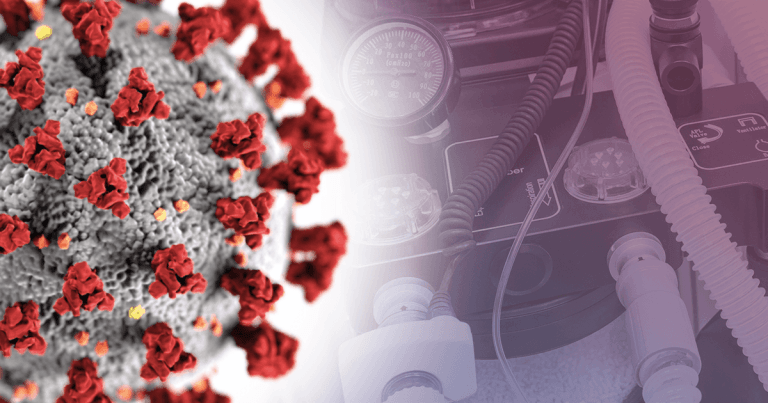18 Mar 2020
NHS doctor issues call to vets for emergency equipment to help fight the pandemic - referral centres and manufacturers preparing to step in, too…

Ventilator image: Paul Vinten / Adobe Stock
The veterinary profession is ready to answer the call and step in to help human health colleagues battling the coronavirus pandemic.
The UK has seen more than 70 confirmed deaths from COVID-19 and hospitals across the UK are bracing themselves for a surge of cases, many of which will require ventilators to resolve.
The NHS is believed to have around 5,000 units capable of the forced ventilation often required to resolve respiratory infections caused by the virus, but many more may be required – and one hospital has already reached out to the veterinary profession for help finding more.
Ventilators, pumps and even trolleys were all on a list sent to a veterinary colleague by Nikki Jackson, a consultant obstetrician and gynaecologist at Hillingdon Hospital in west London.
The list, which has been posted to a vet-specific online group, also includes calls for more infusion pumps, portable suction units and high-flow nasal cannulas.
It is understood the Government has already been fielding offers of help from across the profession, and is in discussions with the AHT and various other referral centres about the possibility of sharing potentially life-saving kit.
An AHT statement said: “The Animal Health Trust, along with other veterinary referral centres, is currently in discussion with the RCVS and the Royal College of Emergency Medicine about the possibility of sharing ventilators to help support the NHS.”
Manufacturers are also on standby, including Vetronic, a firm that has been making veterinary ventilators for almost 30 years.
Managing director and qualified veterinary surgeon Keith Simpson has already been in contact with various Government agencies about providing machines and has been adjusting his design to make it better suited for treating humans.
He said: “We have been producing the Merlin ventilator for 25 years and with a few tweaks it will work fine in a human health setting. There may be a few hurdles to jump in terms of regulation, but I am sure, in the current situation, these can be resolved.
“I have tried to contact Matt Hancock [health secretary] and NHS Scotland, and am awaiting their response. But we are ready, willing and able to step in to do what we can to help with the current situation.”